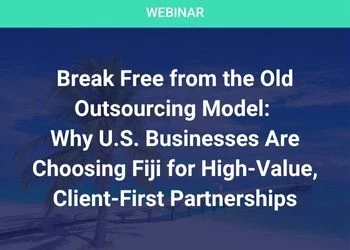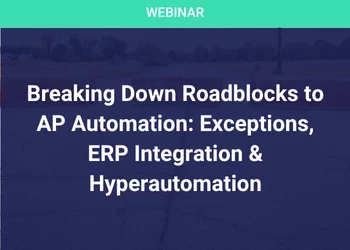CDP HR Client case study
Add bookmark*View all content in HR Series
SSON: Mr. Schürger, could you provide some background on Continental’s global HR strategy?
Klemens Schürger: Yes, of course. Continental initiated a large-scale HR transformation about three years ago. Although we had been looking at optimizing HR services for all our operations, the acquisition of VDO from Siemens in September 2007 acted as a catalyst for change. We suddenly had thousands more staff to service, and also had to replace Siemens’s HR technology. So an overhaul of our own HR processes at the same time made sense.
SSON: How many locations and staff is this global HR transformation impacting?
KS: It is a global initiative, and covers all our operations. I am responsible for all our international locations. Continental covers 130,000 staff in total. Of these, 25,000 are based in the Americas, 17,000 in Asia Pacific, 43,000 in Germany – and the balance in the rest of Europe.
SSON: Can you offer some specifics as to which services you are evaluating?
KS: We are currently evaluating the transfer of the payroll process, the personal master data administration process, and the HR reporting process.
We also have an employee self-service tool for performance management, called HRD Online, which we are about to roll out, as well as a recruiting tracking system. Essentially, we are focusing on developing an interface between the recruiting tracking system and an inhouse personnel data administration system. This is part of our strategy and pretty much defines the direction we are headed in.
(article continued below)
SSON: How are you implementing HR services across different regions? Does a global solution feature in your longer-term plans?
KS: At the moment we are taking a pragmatic, more regional approach. In Germany we already have two shared services centers in operation, one in the north and one in the south – though we are considering how to merge these. Elsewhere, we are planning to implement shared services in Romania, the Czech Republic, and Hungary. These will probably take the form of running on our own inhouse platforms of SAP HR. Although we are currently running regional centers, a global strategy is certainly a greater vision. As I mentioned earlier, our HR transformation was given a push after Continental’s acquisition of VDO. It acted as a catalyst for change. We are just moving carefully and in stages.
SSON: How do you evaluate your sourcing decisions -- what are your options?
KS: We look at HR services options as follows: inhouse shared services based on our own SAP HR platform; a full BPO; or a hybrid, where the inhouse shared services include some applications outsourcing. We evaluate our sourcing decisions on the basis of value-added returns -- meaning that we would only consider changing the process if there was a minimum rate of return to the organization -- we expect at least a 25% savings rate.
As a reference guide, we work out a "base cost" by conducting a Total Cost analysis of the current situation, and then develop various service scenarios, calculating the impact of each on headcount, IT costs, etc.
We approach any sourcing decision from two perspectives: First, the cost perspective, i.e., aiming for a savings of 25% or more, and second, by considering our long-term strategy. So, even if a particular solution offers advantages from a cost perspective, it still needs to align with our corporate strategy.
SSON: Do you work with many different outsource providers in a given geography? Or would you prefer to work with a single partner across different services?
KS: In theory, I believe it is more advantageous for us to work with one vendor where possible, even for different applications or processes. In some cases we have worked with a number of providers. Romania is one example, but this has been a result of unusually rapid growth in this market over the past 5-6 years, requiring us to ramp up services delivery. We are currently in the process of insourcing these particular services, however, as we are now able to provide them ourselves.
SSON: Why did you decide to outsource some of the HR function to CDP Group in China?
KS: We operate across 10 different entities in China. Our payroll in the past was based on excel files. Obviously this was not satisfactory moving forward, and our corporate auditors were pushing us to develop an automated system.
We spoke to a number of possible providers for this region – IBM, HP, ADP, etc. CDP stood out from the rest. Not just in terms of offering the lowest cost, which they did; but also in terms of the concept they offered and their professionalism. On the cost side, CDP offered a tool called EasyHRO – this clearly demonstrated planned cost reductions well beyond our 25% hurdle rate.
Another factor that soon emerged with CDP is that they are very reliable and operate quickly. In our early discussions I remember them saying that they planned to integrate our 10 locations within five months. I had my doubts and thought to myself, "Let’s see." But in fact, that is exactly what they did. I was impressed.
We signed a three-year contract with CDP in March 2008. CDP now runs our full payroll operations, covering 6,500 people.
SSON: How do you coordinate the working groups? Are there any hick-ups?
KS: On our side, we have an HR executive in China who acts as project lead on our behalf. Together with the project lead at CDP she coordinates the work. I have to say – it is amazing how well this project runs. In all my project work over the years, there have always been complications or issues. This Chinese BPO project implemented without any problems at all. CDP even pre-empted any change management issues by taking the initiative with our local HR and plant managers, achieving the stakeholder buy-in that was necessary to effect the transition before we even needed to step in. There have been no occasions where I felt I needed to review road blocks. CDP’s company culture is such that they pre-empt issues before they arise. They are extremely responsive to email and I can rely on them.
SSON: If you were going to choose BPO for other countries in Asia Pacific, would you be more likely to diversify your providers or stick with fewer trusted ones?
KS: Our experience to date has been very good, so if we were looking at bringing other countries in the Asia Pacific region in, we would certainly consider CDP. I would prefer a strategy of consolidating suppliers. We are, in fact, about to evaluate our options for the rest of Asia Pacific. Again, depending on our strategic drivers this might go inhouse, to full BPO or to a hybrid model. We are not yet decided.
| SSON's Dedicated Job Portal Looking for your next big career move? Searching for your company's next superstar? The Shared Services & Outsourcing Network (SSON) invites you to join our dedicated global community of world-class employers and job seekers from right across the shared services and outsourcing universe. Whether you are looking for quality candidates or interested in taking the next step along your professional journey, SSON's Job portal is the go-to resource for your recruiting and job-seeking needs. Introductory Offer for Employers and Agencies: We are offering a 20% discount on your first purchase of any SSON Employer or Agency Package. Premium Members: All Premium SSON Members get one FREE job posting. |





















